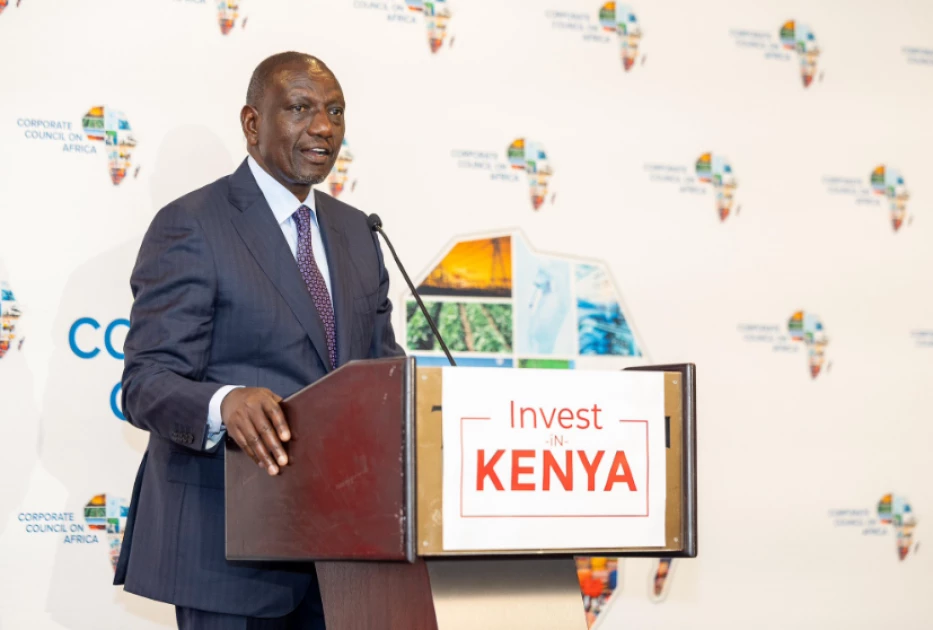President Ruto urges nations to cut reliance on donors in health systems

President William Ruto addresses the US-Kenya Business and Investment Roundtable meeting on the sidelines of UNGA 80 in New York on September 23, 2025. PHOTO | PCS

Audio By Vocalize
President William Ruto has
challenged nations to take ownership of their health systems, warning that
reliance on external donors weakens resilience.
The President said the recent
withdrawal of some external funds exposed national vulnerabilities and offered
an important lesson for strengthening local health systems.
He said Kenya is steadily cutting
dependence on external donors by anchoring its health system on local resources
and community-led solutions.
“In Kenya, we are deliberately
building a system that is less dependent on external aid and more firmly
grounded in domestic solutions and community leadership," he pointed out.
President Ruto spoke during a side
event on social participation in health equity and resilient societies
co-hosted by Slovenia and the World Health Organisation at the 80th session of
the United Nations General Assembly in New York on Monday.
To take control of Kenya’s health
systems, the President explained that the country is advancing universal health
coverage through reforms anchored in law.
He said four new laws on social
health insurance have been enacted to guarantee every Kenyan access to
essential medical care.
“We recently enacted four
transformative laws to drive universal health coverage reforms, including the
rollout of social health insurance that guarantees every Kenyan, regardless of
background or status, access to essential medical services,” he said.
President Ruto pointed out that
Kenya has deployed more than 100,000 community health promoters equipped with
medicines, smart devices, and stipends co-financed by national and county
governments to deliver services at the last mile.
He said this move has ensured that
even the most remote households access basic healthcare.
“We have empowered community
health promoters with medicines, smart devices, and stipends to ensure
last-mile delivery of essential services,” he said.
Saying participatory budgeting has
been strengthened at both national and county levels through digital platforms,
the President explained that this had enabled communities to track health
resources transparently.
On Primary HealthCare, he noted
that it is government policy to reinforce and strengthen community networks so
that residents can actively shape planning, implementation, and oversight.
President Ruto said health
literacy programmes are being expanded to equip citizens with the knowledge to
make informed decisions and engage meaningfully in governance.
He also said the government is
promoting collaboration across sectors by linking health with education,
agriculture, and social protection.
“Together, these strategies are
strengthening trust, deepening accountability, and building a health system
that truly serves the people,” he said.
The President said health reforms
are already making an impact. He said pregnant mothers now have better access
to ante-natal care while children are receiving life-saving vaccines, and
families are being supported in addressing the rising burden of non-communicable
diseases.
President Ruto explained that
these reforms demonstrate that health equity is inseparable from social justice
and sustainable development.
He called on the global community
to embed social participation indicators in health frameworks and share
innovations that empower citizens to shape their destinies.
The President said investment must
go beyond medicines and infrastructure to include the democratic right of
people to participate in decisions about their health.
“The health of nations depends not
only on the strength of their hospitals, but also on the strength of citizen
voices. Kenya aspires to a future where no child is left behind, no community
is unheard, and no citizen is denied their right to health,” he said.


Leave a Comment